To be a Hindu in Bugti land when the boots came
6 min readDERA BUGTI: The Hindu Muhallah, nestled in a corner of the massive fortress that is Bugti House, is a crisscross of narrow lanes with looping power cables dangling from makeshift poles.
It was once a thriving neighbourhood of 250 houses and home to around 5,000 members of the minority community who were mostly traders and owned the majority of shops in the city’s market. Now, most of the houses have a lock on the door.
“Around 400 to 500 Hindus are now left in Dera Bugti,” says Utham Chand who also serves as the custodian of one of three temples in the city.

The exodus came during the state-led operation against Akbar Khan Bugti, the tribal chief who was killed in another operation in 2006. The standoff began in 2004 over mineral and gas rights, the presence of security forces (Frontier Corps) and the rape of a doctor at one of the gas companies, Pakistan Petroleum Limited.
Even as negotiations were underway with the government, the area was surrounded by law enforcement who then used heavy artillery to target Bugti House where the tribal chief was holed up.
A day like no other
On March 17, 2005, hundreds of shells and rockets were fired at Bugti’s residence following a clash between tribesmen and FC personnel. A full-scale operation was launched that Bugti later claimed was an attempt to assassinate him. “One hundred shells and rockets were fired at my fort,” he told a fact-finding mission of journalists that visited the area a fortnight later.
Quite a few of those mortars and rockets landed in the narrow lanes of the Hindu Muhallah.
“People thought that they would survive by taking refuge in this narrow lane,” says Utham Chand outside Mata Darbar, the golden domed temple in the neighbourhood. There is one other temple and a gurdwara in the Hindu Muhallah.

He points out the pockmarked walls and a roof that has caved in. “That is where one of the rockets struck.”
There are conflicting reports on the number of casualties but Utham Chand says 70 Hindus were killed on that day.
“Some people’s heads were torn off. Others’ arms were severed. There were so many people who were injured.” A large number of children were among those killed on that day.
Rana Singh, who is one of the handful of Sikhs to return to the city, says that the sword of an onslaught had been hanging on Dera Bugti for a while.
“[On that day] rockets rained like snow falls from the sky. We tried to save ourselves and our children. We couldn’t figure out how to escape.”
After that strike, the people fled Dera Bugti city en masse. The same thing happened in neighbouring Sui, which is part of the Dera Bugti district. One man said that not a single soul had stayed behind in the city after the attack.
Utham Chand, who was in his twenties back then, fled with his family like the rest of the people. He returned eight years later when Akbar Bugti’s grandson, Shahzain and Gohram, returned after reaching an agreement with security forces.
Rana Singh returned around the same time but he is now one of a handful of the once thousand-strong Sikh community in the city.
“Most of the people are living in either Quetta, Balochistan or in Kashmore in Sindh,” says Ghunsham Singh, another local.
They point out houses and lanes that retain the marks of the military operation.
“The houses are still damaged. Neither the nawabs (tribal chiefs) nor the government has compensated us for the losses we sustained during that time,” says Utham Chand. “An apology is the least they could have done.”
When asked why the others who had left their homes and belongings behind weren’t returning, Utham Chand said they cannot afford it.
“Hindus owned shops and godowns. When we fled the city, our shops and warehouses were robbed. People were reduced to beggars overnight,” he said.
He shows a cheque of Rs15,000 that he received last year. “This was sent to me by Danesh Kumar Paylani,” says Chand. Paylani was elected to the Balochistan Assembly on a seat reserved for minorities and is currently serving as senator.
“How is this enough to compensate for all that I lost?”
He added that he didn’t know whether the money was from the government or the lawmaker who he had never met. He had heard from others about receiving cheques of different values ranging from Rs 8,000 to Rs15,000.
“How can you expect a person living in Thar to travel to Dera Bugti with their family and resume their lives here with such a paltry amount?”
Access to water, while not as big a problem in Dera Bugti, was still a concern. “We haven’t had any gas in the Hindu Muhallah for the last three years despite the area providing it to all of Pakistan.”
He expressed his satisfaction with the level of education and the security situation in the area.

On health facilities, Chand pointed out that the government hospital is usually crowded with patients. “But there are options of a private hospital for basic health needs.” He did point out that the hospitals aren’t equipped for surgeries or complicated procedures like a caesarean.
Minorities safer than anywhere else in Pakistan
Most importantly, Utham Chand underscored the secular nature of the Bugti tribe. “We have never had any incidents of religious intolerance in Dera Bugti.”
He said the Hindus have complete freedom of worship while members of the Bugti tribe also extend all support to them in times of crisis.
“If there has been any incident of a Hindu being robbed, it was due to being at the wrong place at the wrong time,” he said. The Baloch Republican Army, a separatist militant group led by another one of Bugti’s grandsons Brahumdagh, is known to make guerrilla-style raids on locals on the highway leading to Dera Bugti.
Shahzain Bugti, the area’s representative in the National Assembly, had visited the area a day earlier (May 19) to review the cholera outbreak that has claimed over two dozen lives. During the trip, he visited the temple as well as the gurdwara.
But such gestures do not fill empty stomachs nor do they provide basic amenities. It’s been over 17 years since Dera Bugti’s once prosperous Hindu community was forced to flee from their homes.
For the latest news, follow us on Twitter @Aaj_Urdu. We are also on Facebook, Instagram and YouTube.





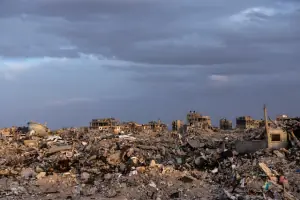



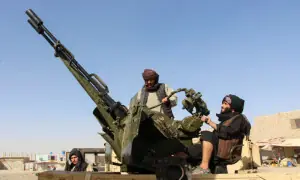

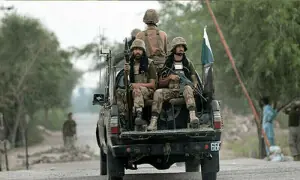
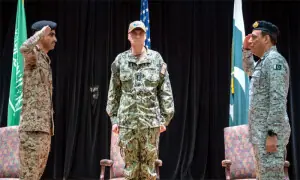

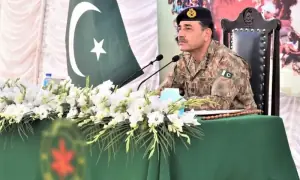

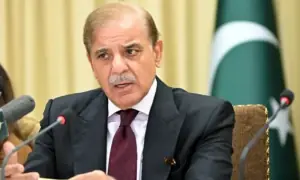
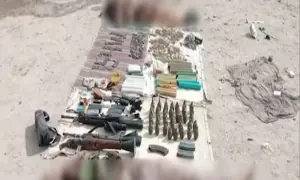

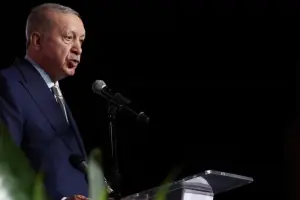
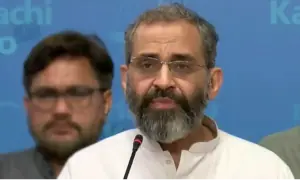
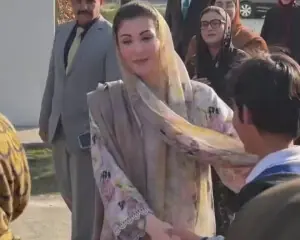
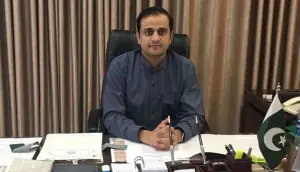
Comments are closed on this story.